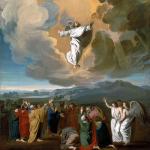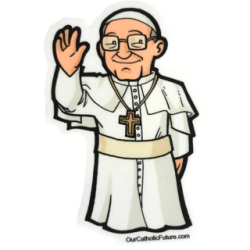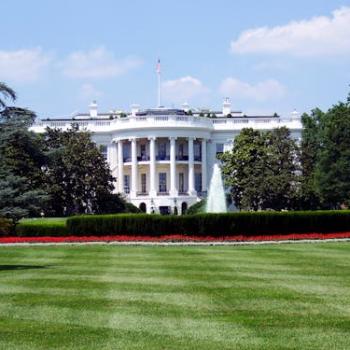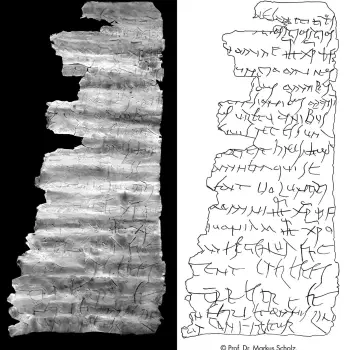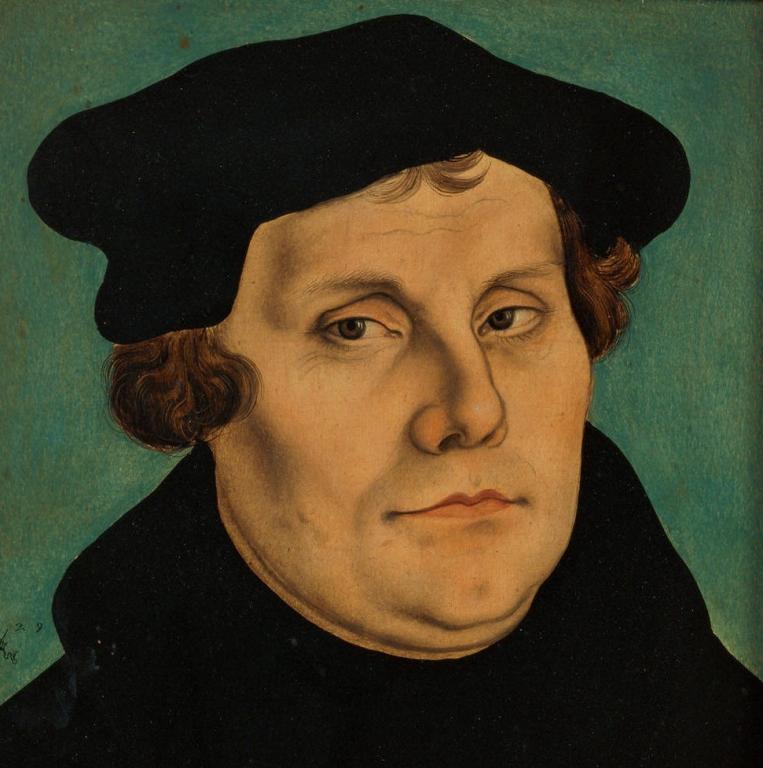 Next Tuesday, on October 31, will be the 500th anniversary of the Protestant Reformation. It started with a dramatic act committed by Martin Luther on that day in 1517. He was an Augustinian monk in the Roman Catholic Church and a professor of Moral Theology at the University of Wittenberg, a city in Germany. He wrote and then published a brief paper called “Ninety-five Theses” or “Disputation on the Power of Indulgences.” It is popularly believed that he nailed this document to the door of the Wittenberg Church that day. But this is now strongly disputed by historians and thus deemed as legend. It is certain that he distributed copies of it to Church officials on that day.
Next Tuesday, on October 31, will be the 500th anniversary of the Protestant Reformation. It started with a dramatic act committed by Martin Luther on that day in 1517. He was an Augustinian monk in the Roman Catholic Church and a professor of Moral Theology at the University of Wittenberg, a city in Germany. He wrote and then published a brief paper called “Ninety-five Theses” or “Disputation on the Power of Indulgences.” It is popularly believed that he nailed this document to the door of the Wittenberg Church that day. But this is now strongly disputed by historians and thus deemed as legend. It is certain that he distributed copies of it to Church officials on that day.
Indulgences were monetary amounts that Catholics were required to pay the Church in order for priests to forgive those parishioners of their sins. But Luther’s 95, numbered points in his paper were not only about his condemnation of indulgences. What followed was the formation of a new church movement–the Protestant Reformation. It sought to establish biblical teaching in opposition to some of the traditions of the Roman Church, including it papacy dogma. Luther substituted for it the biblical teaching called “the universal priesthood of the believer.”
I live in metro-Phoenix and occasionally attend lectures at Arizona State University’s Center for the Study of Religion and Conflict. Nine days ago I attended such a lecture entitled “The Protestant Reformation and the Modern World.” Actually, it was a panel of three professors who spoke on the Reformation and its effects on the world. The participants were Dr. Daniel Philpott of the University of Notre Dame, Dr. Tracy Fessenden, an ASU professor, and Dr. Susan Schreiner of the University of Chicago, who was the eldest panelist and, I thought, the best presenter.
Dr. Schreiner began by providing an overall view of Martin Luther’s career. In this review, I will merely transcribe my notes that I took. Comments in brackets are my explanations offered for clarity.
Dr. Schreiner.
- Luther was mostly about reforming Catholic theology with justification by faith, personal salvation, and freedom. [He did not wish to start a new church.]
- Until Luther, it was a capital crime to not baptize your children. So, they had to be baptized by Roman Catholic Church (RCC) priests. If not, the parents were drowned by the state. [Throughout Europe there was union of church of state, with the church being the RCC, and it taught baptismal regeneration.]
- Every Sunday, when Catholics heard the church bells they immediately headed for church to attend “mass” and witness “the miracle” of the communion service, in which they were taught that they experienced eating the literal body and blood of Jesus [called transubstantiation].
- The greatest contribution of the Protestant Reformation was that it translated the Bible into people’s native tongues so that they could read it for themselves or hear it read in their native language.
Dr. Daniel Philpott.
- Martin Luther had two kingdom concepts: spiritual and secular. Thus, by 1648, European states were sovereign, so that the RCC did not control them. The pope was no longer the secular ruler. There was separation of church and state to some degree. The secular king was not the head of the church, whether Protestant or Catholic. [Some states were by then predominantly Protestant and others mostly Catholic.] Dr. Fessenden interjected here, saying states “did not allow different religions” due to fear of “heresy” and perceived need to protect “church unity.”
Dr. Fessenden.
- Protestants believed the truth of religion is only in the Bible.
- Religion was now focused on correct beliefs, that is, what the Bible means.
- People now choose between churches and the beliefs they taught.
- Protestants claim Catholicism is founded more on man’s teaching.
- Today’s expression, “I’m spiritual but not religious,” is an early Protestant idea.
- Religion is focused on inner personal faith rather than outward ritual.
- Reformation concept: “Have you accepted Jesus as your personal Savior.”
Dr. Philpott.
- The Reformation emphasized personal freedom. Queen Mary tried to bring back Catholicism to England. The Bloody Mary cocktail was named after her.
- John Locke pioneered England’s religious freedom. [His writings had the greatest influence on Thomas Jefferson regarding his views of democracy.]
- The Muslims’ Quran says, “No compulsion in matters of religion.”
Dr. Fessenden.
- Protestantism contributed to the formation of self-government, thus democracy. Dr. Philpott interjected, here, saying Protestant missionaries required native peoples to be educated, thus learn to read. Dr. Schreiner interjected, here, that the Protestant view of election was that you didn’t have to earn your salvation. So, “if you were elect, you knew it.” People were free of religious authority. Salvation no longer starts with good works, but freedom to believe. Luther eliminated spiritual intercessors such as priests. [universal priesthood of believer]
- Early Reformation was communal.
- Spiritualism was prominent, meaning the Holy Spirit illuminated people directly. Thus, the Holy Spirit was now emphasized. Protestants believed God gave each of them the Holy Spirit to keep them from falling into theological error.
- John Calvin headed the Protestant church at Geneva. [It was an effort to create a Protestant city, instituting “blue laws.”] So, you had to go church on Sunday; if not, you were arrested and jailed.
- Luther eliminated spiritual intercessors such as priests. [again, universal priesthood of believer]
Dr. Schreiner.
- Puritans had a Calvinist background. Thus, they were certain of their salvation. [Assurance of salvation.] Catholics were not certain of it. Puritans believed in signs of election and personal examination of self to be sure you were truly saved.
Dr. Fessenden.
- There was spiritual equality in the Protestant Reformation and universal priesthood of the believer. The divine is imminent in people and in the world. No need of human mediator for union with God.
There was a Q. & A. session with the audience, which numbered perhaps 250 people.
Q. What about the role of slavery in Christianity?
A. Dr. Schreiner answered that slavery mentioned in the Bible was different from our concept of slavery experienced in earlier centuries in the U.S. There’s was servitude that often occurred due to war. Equality in society was not assumed in antiquity; neither was it in early Protestantism. Thomas Aquinas condemned slavery. Abolition in U.S. in 19th c. was based on the personal dignity of every human due to being made in the image of God.
Q. Please comment on the Protestants’ strong missionary zeal.
A. Dr. Fessenden replied that Protestants removed the obstacle of native society, making room for a new society. Dr. Schreiner responded, saying Protestant missionaries believed they were freeing people from bondage with the truth. Jesuit missionaries believed they were converting people to the truth as well. Some Catholics were conquerers more than they were converters. She also said the concept of the autonomous self has been traced to Protestantism; but she added that she disagrees, saying it is traced only to the religious wars starting in 1646. She said we Americans are products more of Enlightenment than of Protestantism. She said, “If Luther came back today and saw our American optimism and individualism, he would crawl back in his grave.” She added that Luther believed religion is “the devil’s whore.” [He based that on his interpretation of Revelation 17.]
Q. What about the Protestant ethic?
A. Dr. Fessenden said belief in “the signs of election” contributed to the Protestant work ethic. So, Protestants believed in capitalism without showing off their wealth. Dr. Schreiner added that one factor that contributed to the Protestant work ethic was the development of technology. She alleged, “We Americans think we are in control. No.”



